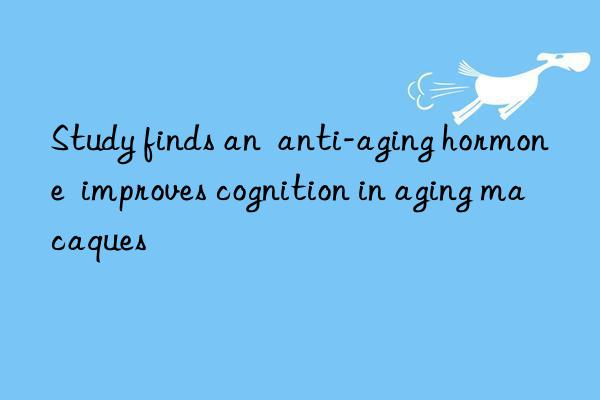
US researchers have found that injecting low doses of the "anti-aging hormone" Kloxol into old macaques improves their cognition. If further research proves to be effective in humans, the method could help the elderly fight problems such as memory loss.
Klothol is a protein produced by the kidneys that is involved in various physiological processes, and its content in the body decreases with age. Previous studies have shown that mice lacking clotsole develop symptoms similar to premature aging in humans, while mice with higher levels of clotsine live longer and have better memory.
Researchers from institutions such as the Yale University School of Medicine in the United States published a paper in the British journal "Nature Aging", saying that they injected Kloxol into macaques with an average age of 22 (equivalent to 65 years for humans) to find hidden food. task to test memory in rhesus monkeys. The results showed that an injection dose of 10 micrograms per kilogram of body weight can significantly improve cognitive levels, and the effect of one injection lasts for at least two weeks.
Unlike mice, increasing the injected dose did not further improve cognition in macaques. Injections had little effect at doses up to 30 micrograms per kilogram of body weight. This means that there should be a lower suitable dose range if klotoxue can be used in humans.



 微信扫一扫打赏
微信扫一扫打赏
